Looking back at 2025: A year in photos from Kensington
A year in photographs from the neighborhood, made close and over time.
Effective immediately, businesses without liquor licenses located between Kensington and Frankford avenues and Lehigh Avenue and Tioga Street must close from 11 p.m. to 6 a.m.

Led by three of four members of the Kensington caucus, Philadelphia City Council unanimously passed a bill on Thursday that imposes a curfew for businesses in a select area of Kensington.
Mayor Cherelle Parker has 10 days to sign the bill into law. If approved, the curfew will take effect immediately and businesses without liquor licenses located between Kensington and Frankford avenues and Lehigh Avenue and Tioga Street must close from 11 p.m. and 6 a.m.
At least 20 businesses are impacted. They mostly include 24-hour convenience stores, bodegas, and take-out restaurants. Any business that violates the curfew will be fined $500 for each day it’s open after 11 p.m.
The bill was proposed by Councilmember Quetcy Lozada, and co-sponsored by two other members of the “Kensington caucus” — Councilmembers Jim Harrity and Mike Driscoll — plus Councilmember Anthony Phillips.
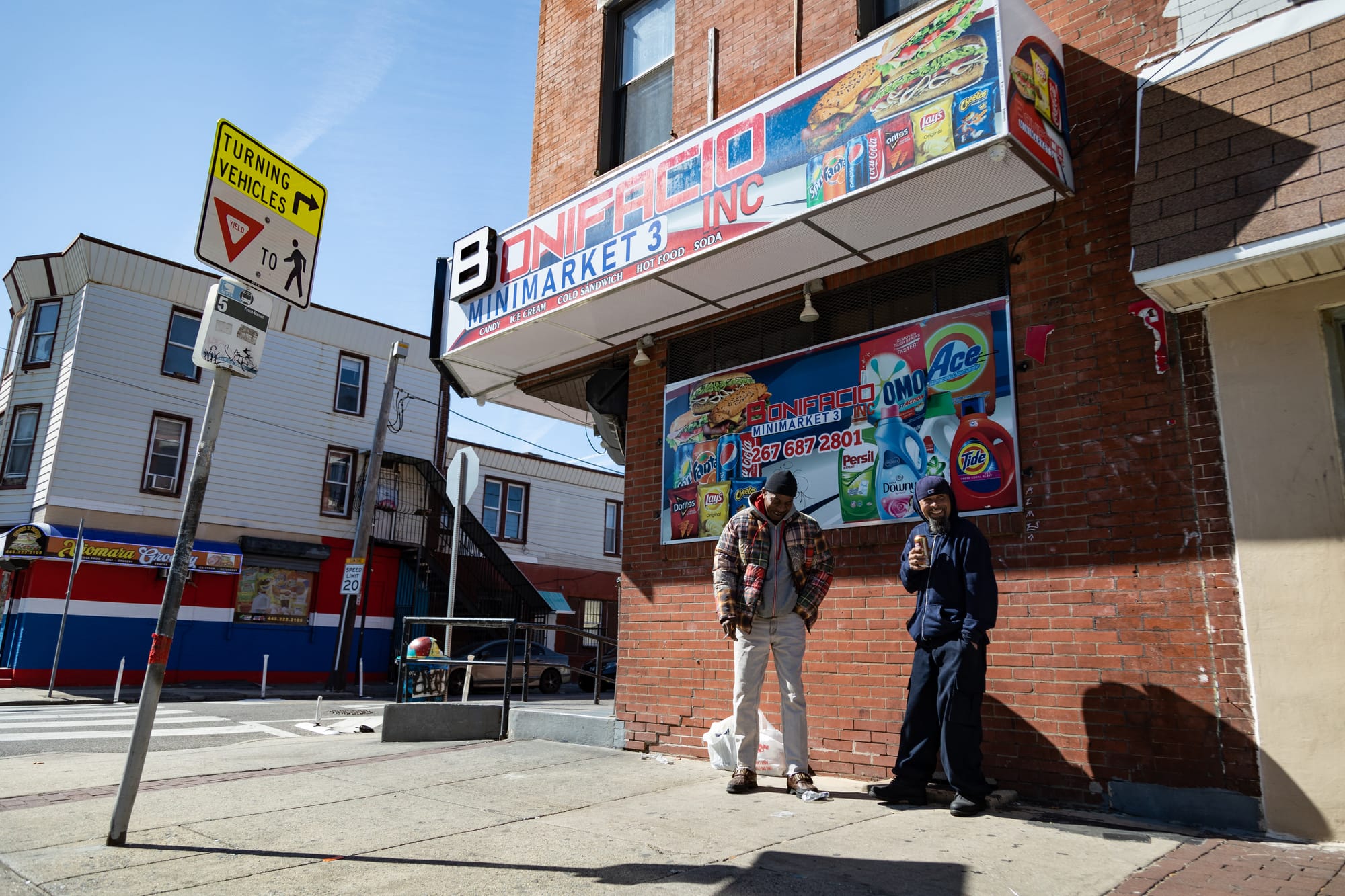
The purpose of the curfew is to “increase enforcement and neighborhood cleaning” within the area, and “curb crime and remove any hot spots where individuals may congregate after dark,” according to a fact sheet distributed by Councilmember Quetcy Lozada’s office.
“We're excited about bringing some structure back into that business corridor and giving some relief to the residents that live above some of those businesses who are impacted by the activity,” Lozada said in an interview Thursday.
“What we’re trying to do is just get a handle on all the different criminal activities that are going on in that neighborhood,” said Harrity in an interview with Kensington Voice on March 6th.
Lozada said the criminal activity they are targeting involves businesses that “respond to the open-air drug market” and “respond to human trafficking.” She said the activity there negatively impacts nearby “responsible businesses.”
The curfew will expire on January 1, 2028, because of its “sunset provision,” an addition to the bill Lozada made after a vote on the curfew was postponed two weeks ago. A sunset provision is a clause in legislation that forces the law to expire by a specific date.
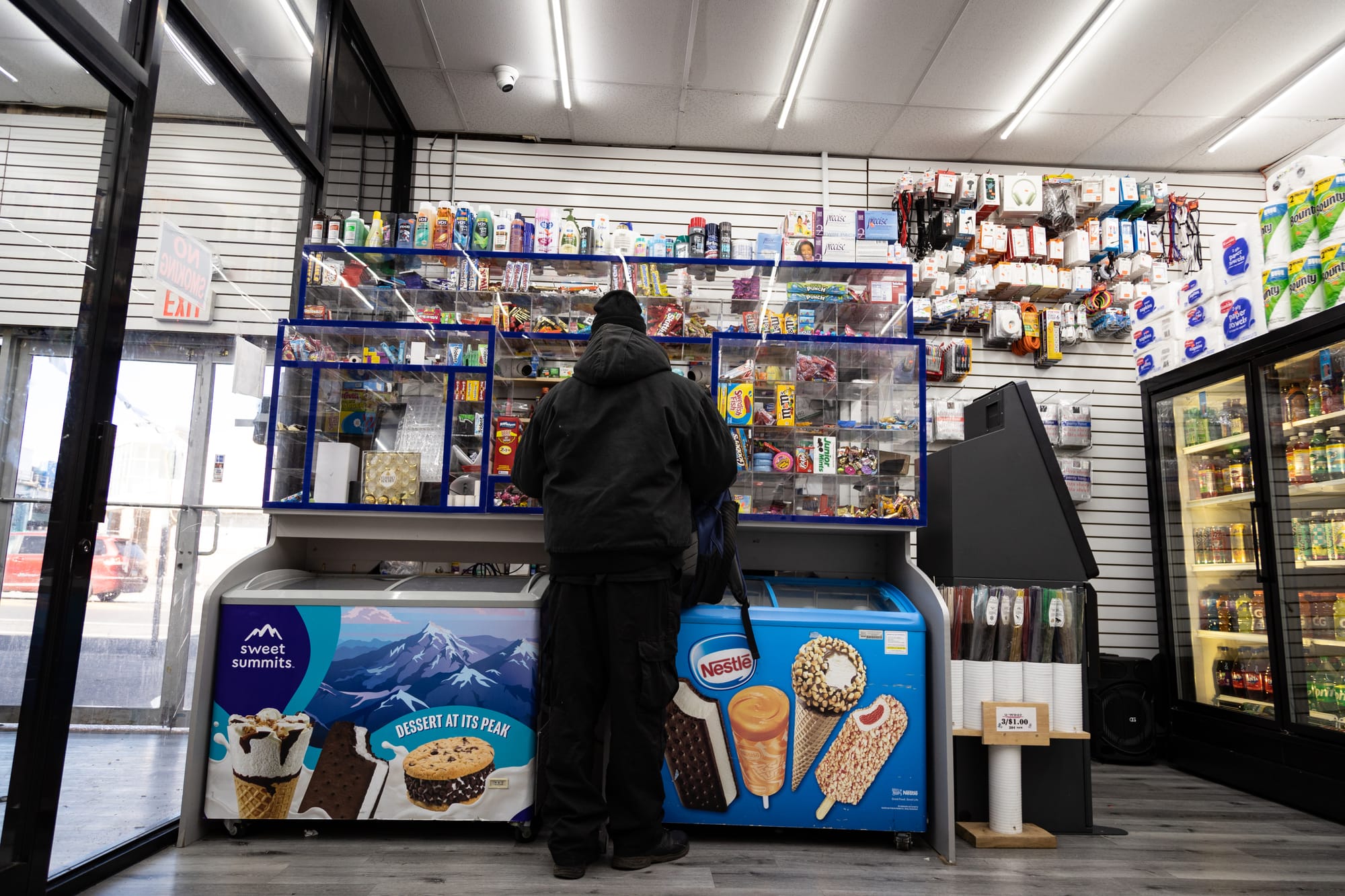
Lee Nentwig, the Commercial Corridor Manager of New Kensington Community Development Corporation (NKCDC), said the curfew is one way to “hold problematic businesses accountable,” specifically businesses connected to the drug trade and those “who don’t care about the health of the neighborhood.”
In addition to the curfew, Nentwig said the city needs to further support and incentivize family-owned businesses in the neighborhood so they can thrive.
“We should be mindful that many of these convenience stores and take out spots are managed by immigrant families and that these store owners and employees likely don't enjoy operating at late hours of the night behind bullet proof glass,” he said. “They can also be overwhelmed and abused by people taking over their stores when that's not necessarily what they want.”
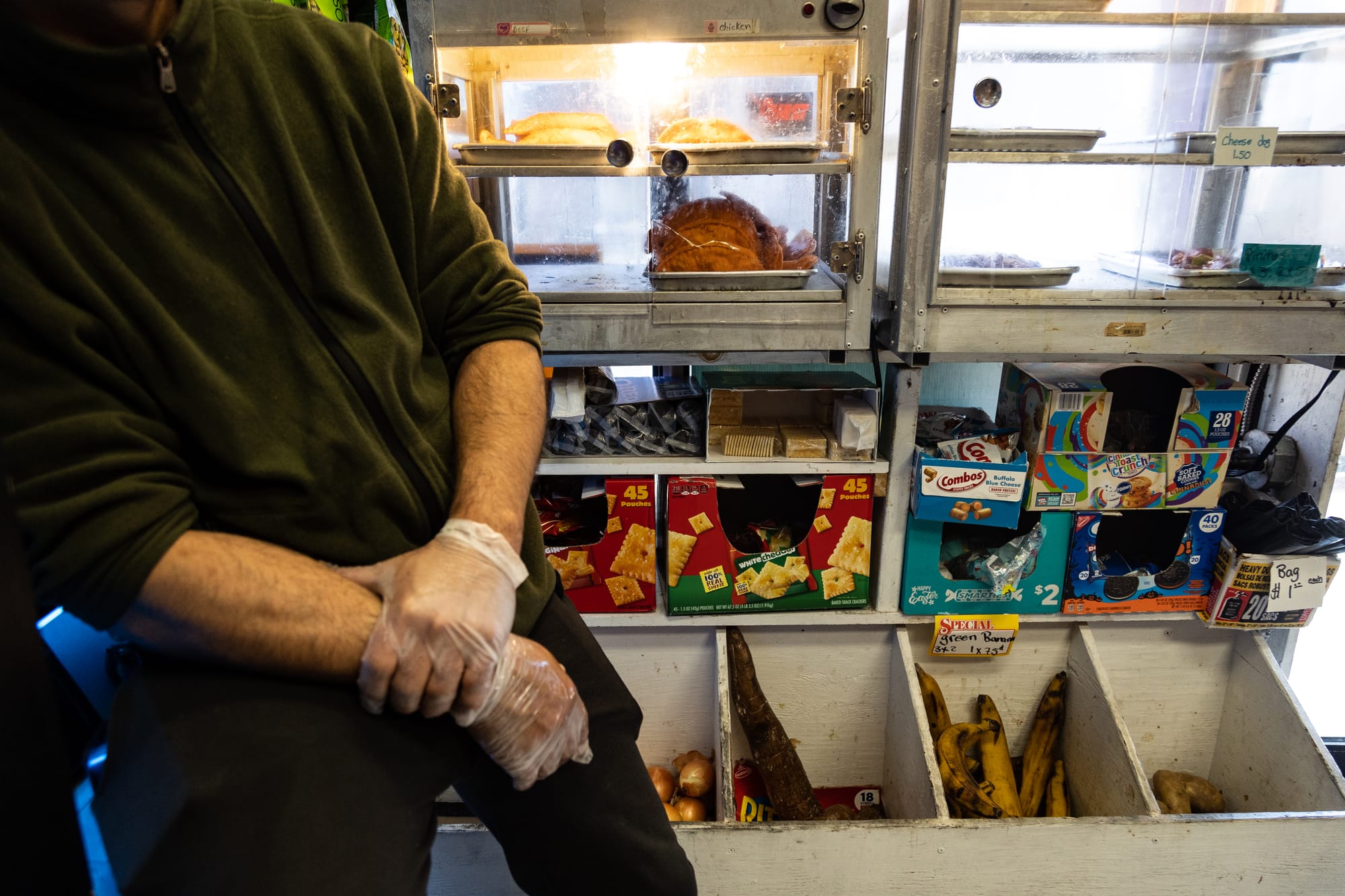
But some of the late-night take-out restaurants affected by the new curfew say they just want to serve residents and don’t support the new policy.
Leon is a line cook at Lin’s Garden on Frankford Avenue and East Monmouth Street. The Chinese take-out restaurant is usually open until 12:30 a.m.. He said 11 p.m. is “too early,” and asked the city to consider midnight instead.
“Most of the workers get off really late and want to grab something,” said Leon, who declined to share his last name for privacy reasons.
“We want to make convenience for our neighbors, " he added, because other places are too far to walk and those who get home late don’t want to cook.
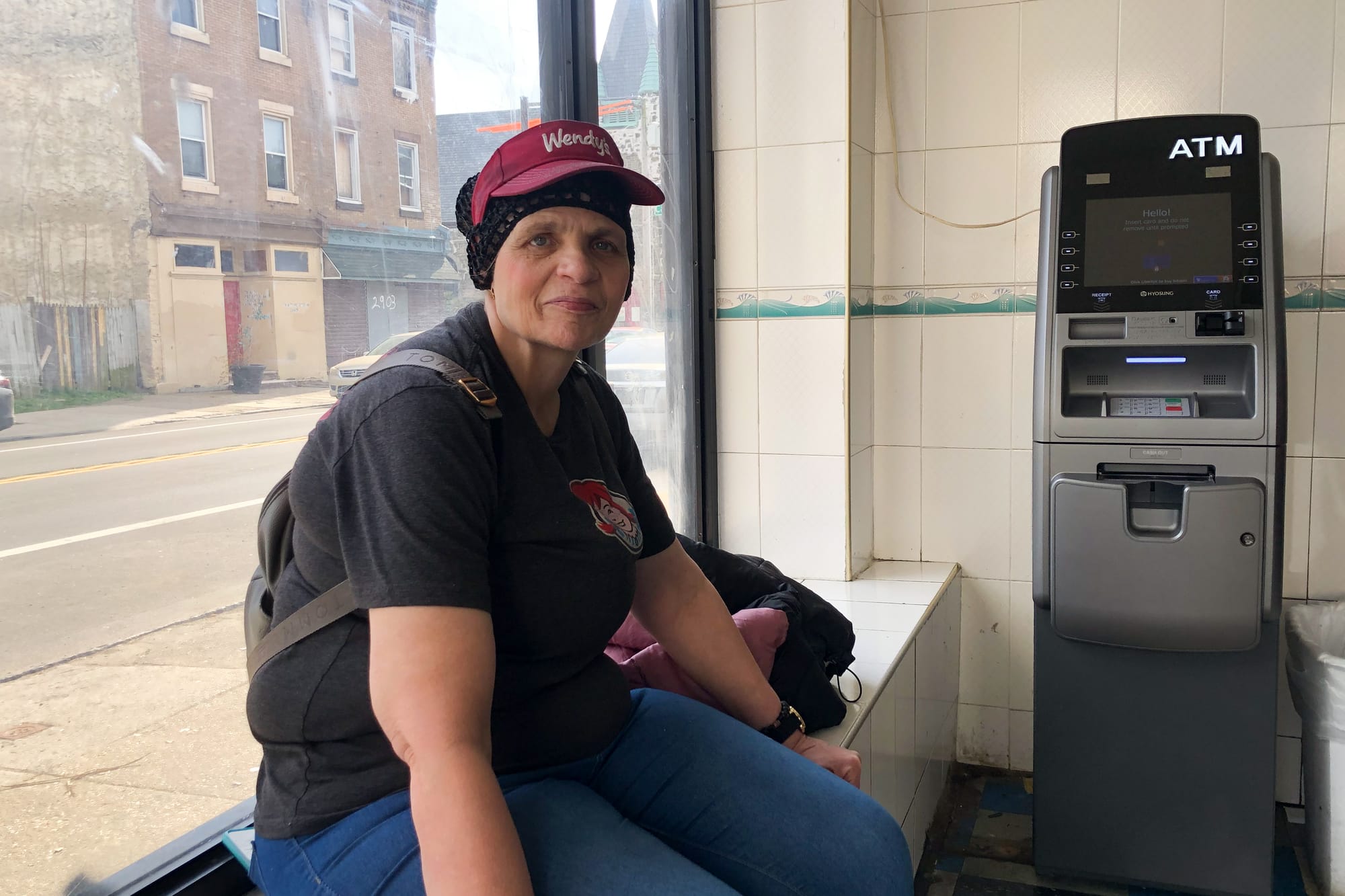
Dawn Tenorio, a neighbor and regular customer of Lin’s Garden, said the restaurant is important to community members who work late and get hungry after 11 p.m., like herself and her son.
“Everybody has to eat,” Tenorio said.
Manuel, who declined to share his last name, is the owner of the Original Pizza Palace on Frankford Avenue, which stays open until midnight for take-out orders. He described that last hour as a “major rush.”
“You might as well call it last call at the bar,” he said.
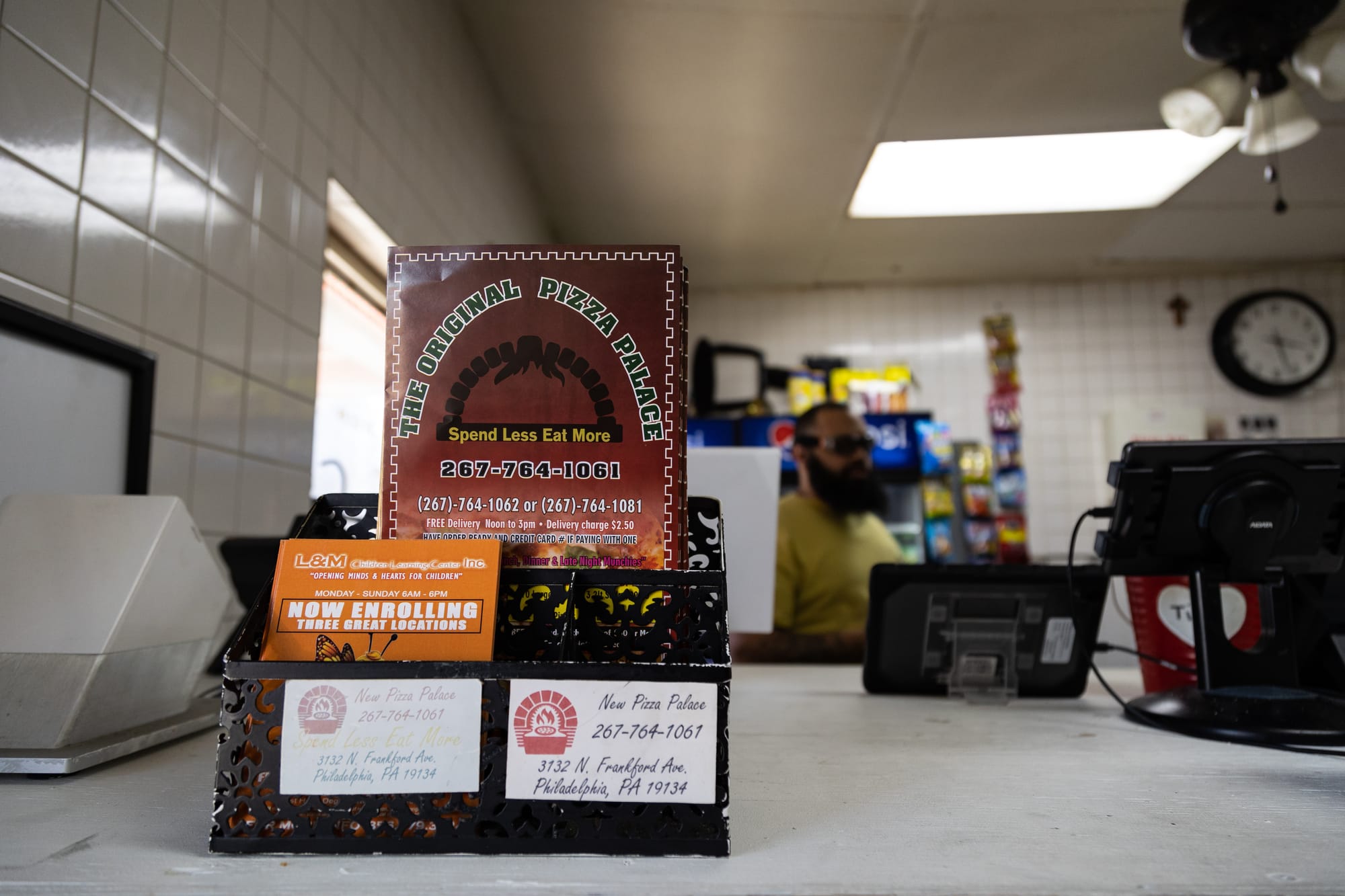
Manuel said he’s concerned about being able to make rent and pay his workers enough once the curfew takes effect. He said his staff are already asking if they can come in earlier to make up the extra hour and predicts mom-and-pop shops will lose workers due to the pay cut.
“Employees are telling me, ‘One hour actually makes a difference,’” he said.
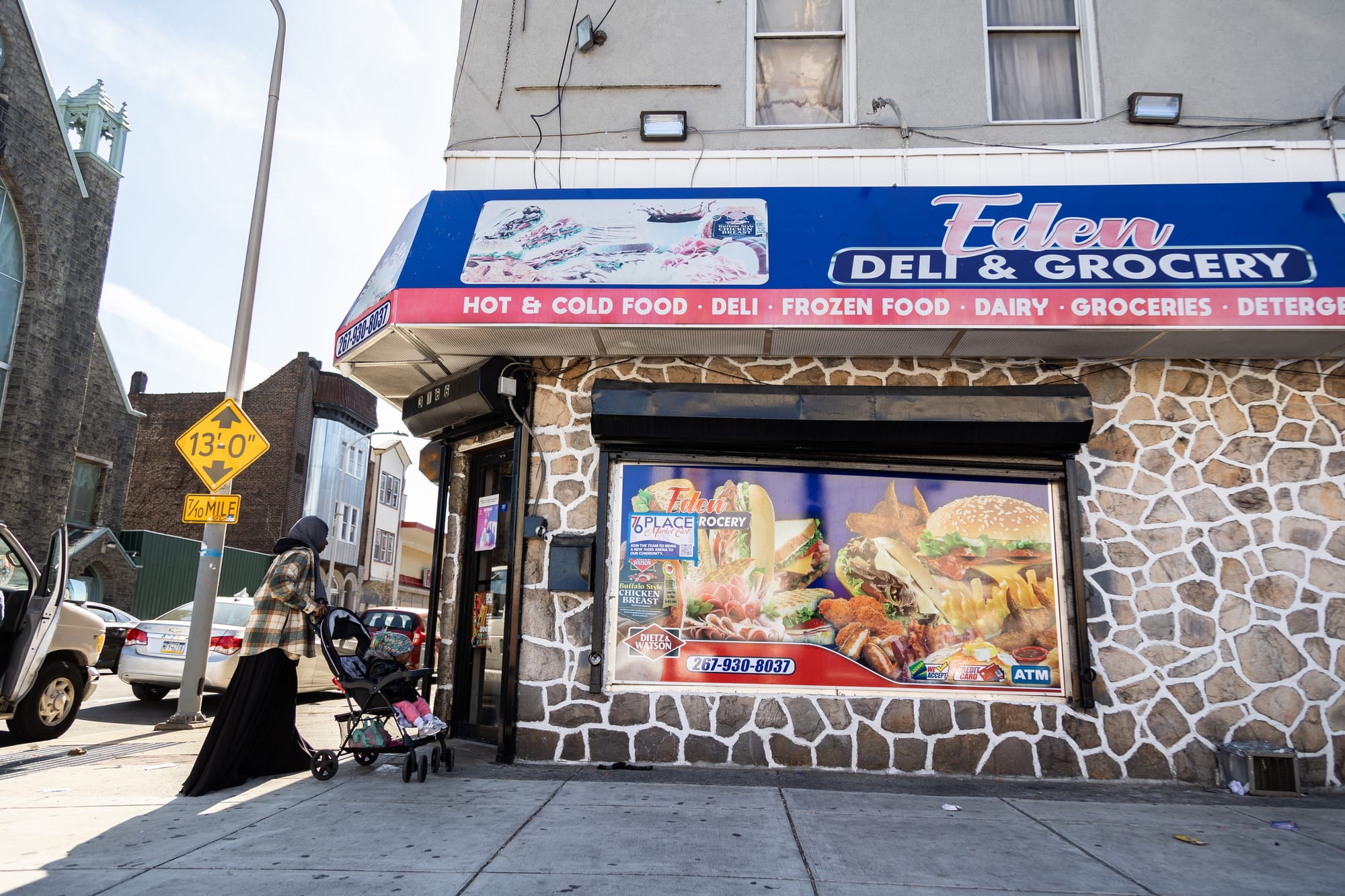
The curfew comes as fears within the harm reduction and mutual aid communities are swirling around the city’s plans to create a “triage” system where people who are unhoused and living with addiction are sent to treatment or jail. In September, City Council also banned narcotics injection sites, known commonly as safe injection sites, in almost every council district in Philadelphia.
The Kensington caucus also released a statement in February calling harm reduction providers a “nuisance.” Among those “nuisance” providers are the Savage Sisters, a non-profit that provides harm reduction services in the neighborhood. The organization is being forced to leave its storefront on Kensington Avenue and East Clearfield Street after Lozada urged its landlord Shift Capital to not renew their lease.
Kelsey León, an organizer with Community Action Relief Project (CARP), a Kensington mutual aid group, said she believes the curfew is part of a “larger strategy of increased policing” in the neighborhood.
“They are looking for more opportunities to pick people up for arrest and to sign people up for mandatory treatment that has not yet been outlined,” León said.
Raani Begum, an organizer with Project SAFE, a harm reduction group in Kensington, said the curfew doesn’t address the root issues of why people are “congregating” in certain areas.
“A curfew doesn't create housing. A curfew doesn't create health care for people, it doesn't feed anybody,” Begum said. “What is it supposed to do?”
León worries the curfew will limit access to basic necessities for anyone out late at night, and is another attempt to make the area inhospitable to unhoused people. She pointed to Lozada’s fact sheet that uses the term “neighborhood cleaning.”
“In my experience, it's a dog whistle for, ‘We just want to get all the homeless people out of the way – we don't care where they go,’” León said.
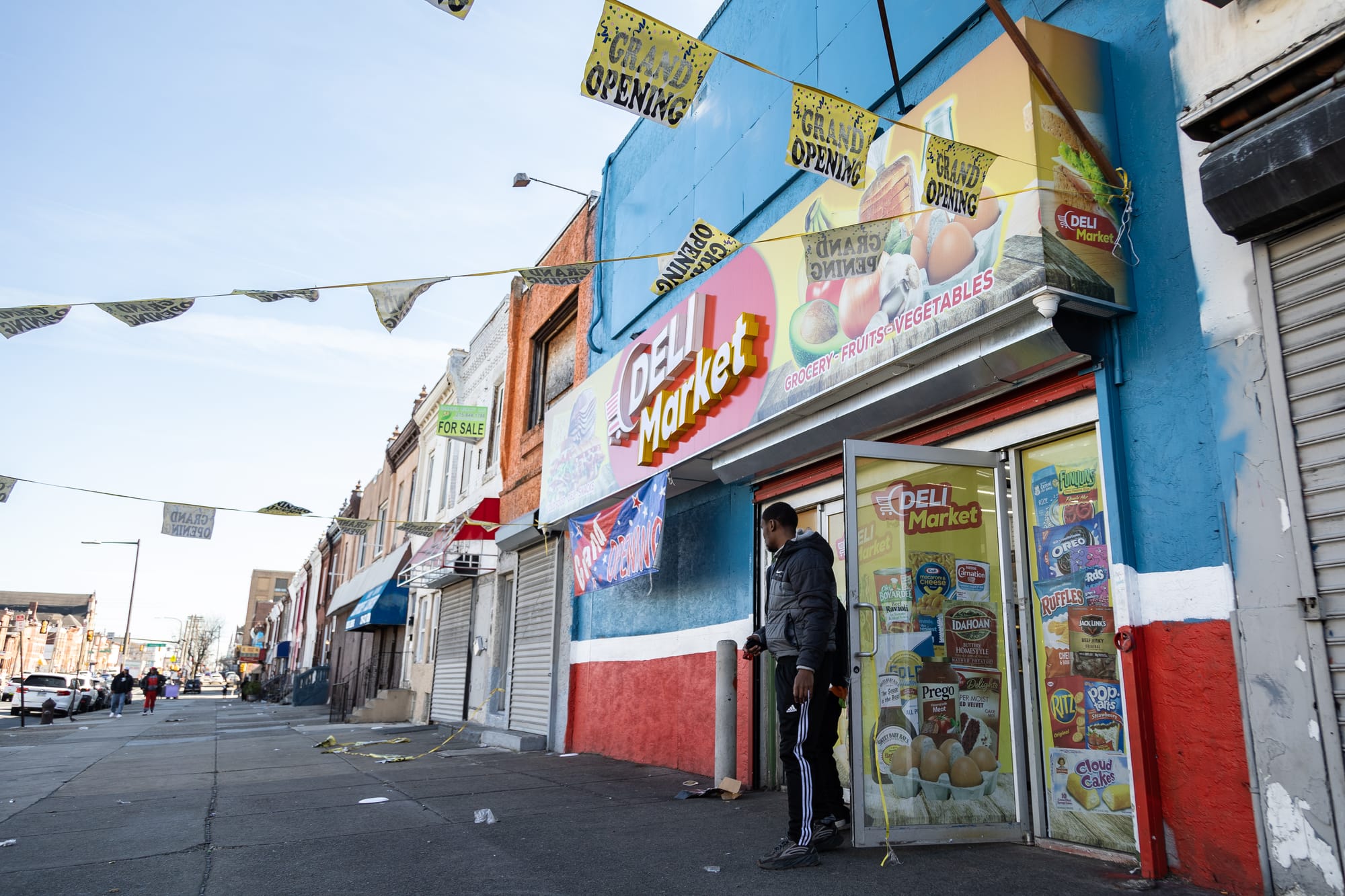
In response to León’s concern, Lozada denied that the curfew targets people who are unhoused and called the current living conditions for unhoused people “inhumane.”
“We should not allow folks to live on our streets anyway,” Lozada said. “It is inhumane to allow them to live in the conditions that they're living in.”
Sarah Laurel, the executive director and co-founder of Savage Sisters, said all of the recent policy changes introduced by the Kensington caucus “will change the community and cause a lot of harm all across the board.”
Laurel also sees the potentially negative impact of the curfew on the safety of people engaged in sex work in the neighborhood, with less access to shelter and lighting from the stores.
“I've been homeless in Kensington and I know what it's like to run down a dark street and everything is closed and you need help,” Laurel said.
*Editor's note: A previous version of this story said the business curfew was effective immediately, which was a mistake. Mayor Cherelle Parker has 10 days to sign the bill into law. If approved, it will take effect immediately.
Have any questions, comments, or concerns about this story? Send an email to editors@kensingtonvoice.com.
Free accountability journalism, community news, & local resources delivered weekly to your inbox.